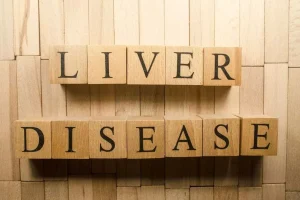

An alcoholic may blame others or situational circumstances rather than take ownership of their behavior. For instance, they might say things like, “If my spouse didn’t nag me all the time, I wouldn’t need to drink,” or “It’s just because of the stress at work that I have to drink.” We need to learn what alcoholic denial is and why it happens to https://ecosoberhouse.com/ people with drug problems. We need to be able to approach with empathy to the loved ones who are reluctant to change, helping them face the truth and become more open to change. Half reported a biological father with DSM-III alcoholism and half had no known alcoholic relative (American Psychiatric Association, 1980; Schuckit and Gold, 1988).

Residential treatment programs
- The group can give you a place to get social support and encouragement from others going through a similar situation.
- A more appropriate way to screen patients for alcohol impairment would be to use a standardized and more detailed review of patterns of drinking and alcohol-related problems such as the ten item AUDIT.
- Concealing is another sign of alcoholism denial, where individuals try to hide their drinking from others.
- People in alcoholic denial aren’t trying to harm others or avoid the consequences of their drinking.
- This could happen in the form of an overdose or other major health event, legal trouble, or relationship strain or loss.
You might slowly begin to accept more and more unacceptable behavior. Before you realize it, you can find yourself in a full-blown abusive alcoholism and denial relationship. But the reality is that not even the person dependent on alcohol can control their drinking, try as they may.

Do’s & Don’ts of Helping Someone in Alcoholic Denial
- A lack of education may lead to misunderstandings about the condition, causing a person to mask or downplay their alcohol use disorder.
- Someone rationalizing a drink could claim that the day was particularly stressful, so alcohol is a deserved reward.
- Additionally, speaking with a therapist, talking to people who are in recovery, confiding in their physician, and exploring recovery resources may empower a person in denial to seek help on their terms.
They may claim that others are overreacting, and they can change their ways at any point. They may also suggest that their family and friends just don’t understand them. People in alcoholic denial aren’t trying to harm others or avoid the consequences of their drinking. Instead, they’re dealing with a very real psychological aspect of addiction. More than 29.5 million people ages 12 and older have an alcohol use disorder (AUD).[1] People with alcoholism denial don’t believe they’re part of this group.

Family Dynamics
In the end, there is nothing strange about alcoholics’ denial, except for its exaggeration and application to a risk others see as obvious. Another interesting finding related to the overall differences across generations regarding the specific criteria items endorsed by AUD probands and AUD offspring in the first data columns of Tables 1 and and3.3. One striking finding involved the 4% of AUD probands overall who admitted to tolerance in the prior five years compared to 57% who endorsed tolerance in AUD offspring. A cursory review of tolerance reports over the years in SDPS AUD probands indicated that this variable had been endorsed by AUD probands at age 35 at a rate similar to the current AUD offspring. However, the proportions of probands who reported tolerance in the five years prior to interview decreased steadily with each subsequent interview.
- Every detail you add could break through denial and help the person see the problem clearly.
- In our society, drinking is often normalized and socially accepted.
- Asking for help or admitting to struggling with a problem is hard for many people, not just those who struggle with their use of alcohol.
- Table 2 presents results predicting AUD proband denier status using a backwards elimination logistic regression analysis that included variables that differed significantly across deniers and non-deniers in Table 1.
Support for Me and My Family
A lack of education may lead to misunderstandings about the condition, causing a person to mask or downplay their alcohol use disorder. By providing accurate information about alcoholism, you can create an environment where people feel more comfortable acknowledging their struggles and seeking help. Societal and cultural factors can also play a role in an alcoholic’s denial. The stigma and judgment surrounding addiction create an environment where individuals may feel discouraged from seeking help or admitting to their problem. Alcohol consumption is often seen as socially acceptable, which can enable individuals to justify their excessive drinking. Alcohol may be a big part of their social life and friendships, or a coping mechanism for trauma, mental health issues, and severe stress.

The Role of Support Groups
Understanding a Twelve Step Recovery Program for alcohol addiction and the importance of ongoing recovery programming and support groups. When you see a family member or loved one repeatedly choose alcohol or other drugs above all else, you might begin to lose sight of the person you thought you knew. The problem is that alcoholism—or what doctors today refer to as “alcohol use disorder”—has taken hold. Here’s some information to help you get ready for your appointment, and what to expect from your health care provider or mental health provider. You’re likely to start by seeing your primary health care provider.
- When people can’t admit to having a problem, there’s no way to find a solution.
- People who deny they have a problem with drinking don’t need to change their habits or alter their lives.
- Access to educational materials and ongoing support can be invaluable in addressing alcoholic denial and guiding individuals towards a healthier life.
- The effects of alcoholism on families include stress, anxiety and depression.
- Those steps allowed a unique opportunity to ask questions and compare results across time and across generations.
You suspect your spouse, close friend, or relative has a drinking problem. What might seem like a reasonable expectation in some circumstances might be totally unreasonable when it comes to someone with an addiction. When your loved one swears to you and to themselves that they will never touch another drop of alcohol, you might believe them.



